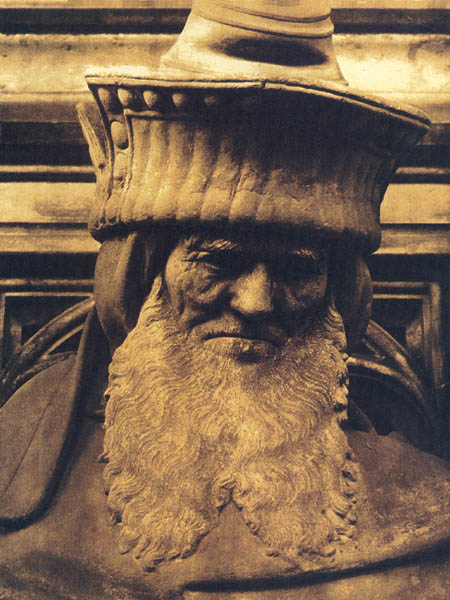Image Details

The prophet Zechariah was active in the late sixth century B.C.E., the period that saw the return of Israelite exiles from Babylon. The concluding chapters of the Book of Zechariah contain two long sections that begin with the word massa’, meaning utterance or pronouncement. What we call the Book of Malachi also begins with the word massa’—the key that links it to the concluding chapters of Zechariah. The first two massa’ot (plural), in Zechariah, describe Jerusalem’s restoration by a new king and foretell of a catastrophic battle among nations from which Judah emerges victorious. The last massa’, the Book of Malachi, decries the halfhearted service of the priesthood and the faithlessness of the people yet concludes with the possibility of a reconciliation between God and Israel: “For I am the Lord … Return to me that I may return to you.”
The life-size statue of Zechariah (shown here) greets visitors to the Moses Fountain at the Chartreuse de Champmol monastery in Dijon, France. The fountain was crafted by the sculptor Claus Sluter in about 1400.
